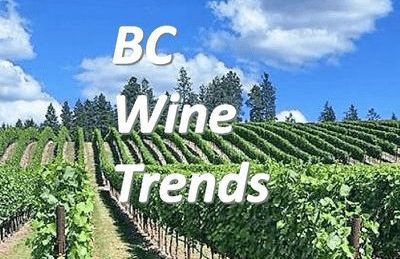Vintage 2017 Summary – Other BC Regions
2017 was an unprecedented year for wildfires in British Columbia. At the height of the crisis, it’s estimated over 65 000 people were forced from their homes due to the danger some of those fires posed to communities throughout the province. The fire had a real impact on tourism in the Thompson Valley / Kamloops area. The smoke severely impacted air quality and led to a major reduction in tasting room visits.
In the Fraser Valley there was a wet spring like the Okanagan but less smoke and far less impact on tourism. For Vancouver and the Gulf Islands, the smoke was not as bad a problem as the BC interior but it did provide shade for a cooler summer.
Thompson Valley
Ashley Demedeiros & Galen Barnhardt
– Monte Creek Ranch Winery

Here are some details for the Monte Creek Ranch Winery.
- The first day of harvest was the first day of September. The last day of harvest was the last day of October. 249 tons of grapes were harvested.
- We took a few more chances this year by expanding our usage of native yeast fermentation. No yeast added, just using the yeast on the grapes and floating about in the winery. All of the Chardonnay and Pinot Noir were native ferments this year, plus the majority of the Rosé, Riesling, and Cabernet Sauvignon, as well as components of every other wine. We look forward to seeing how the wines develop. I expect to see a change in complexity.
- So far in our fermentation process, none of the wines appears to have been negatively affected by smoke taint. We had our grapes tested before harvest and there was no indication of taint from our vineyards.
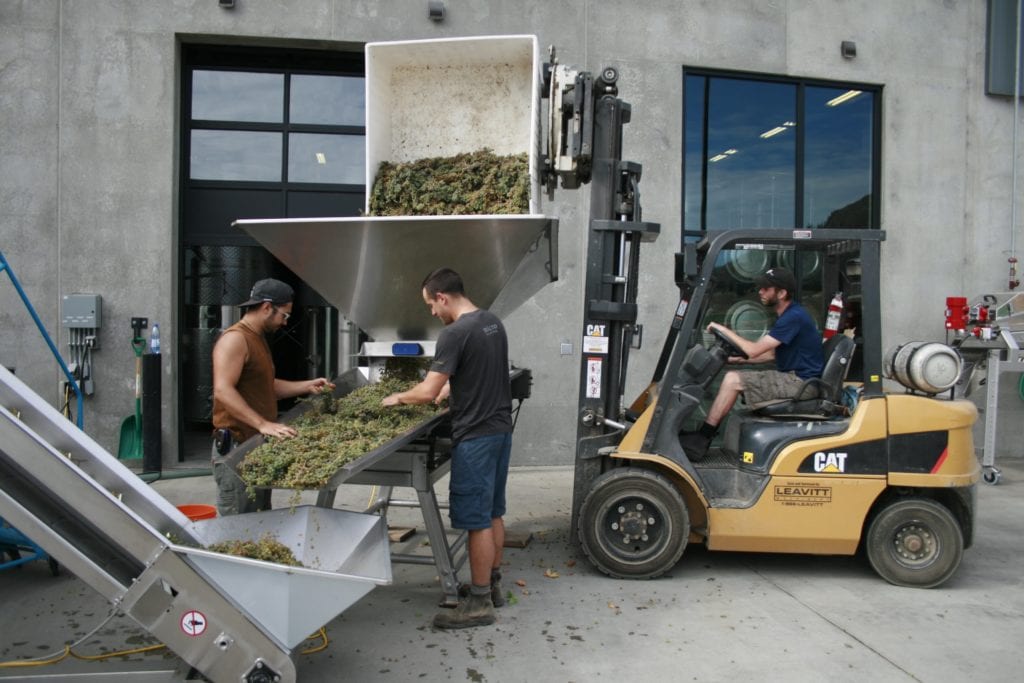
Wade Tywonluk – Cellar Hand, Galen Barnhardt – Head Winemaker and Brent Peachey– Assistant Winemaker
Vicki Collett – Harper’s Trail Winery
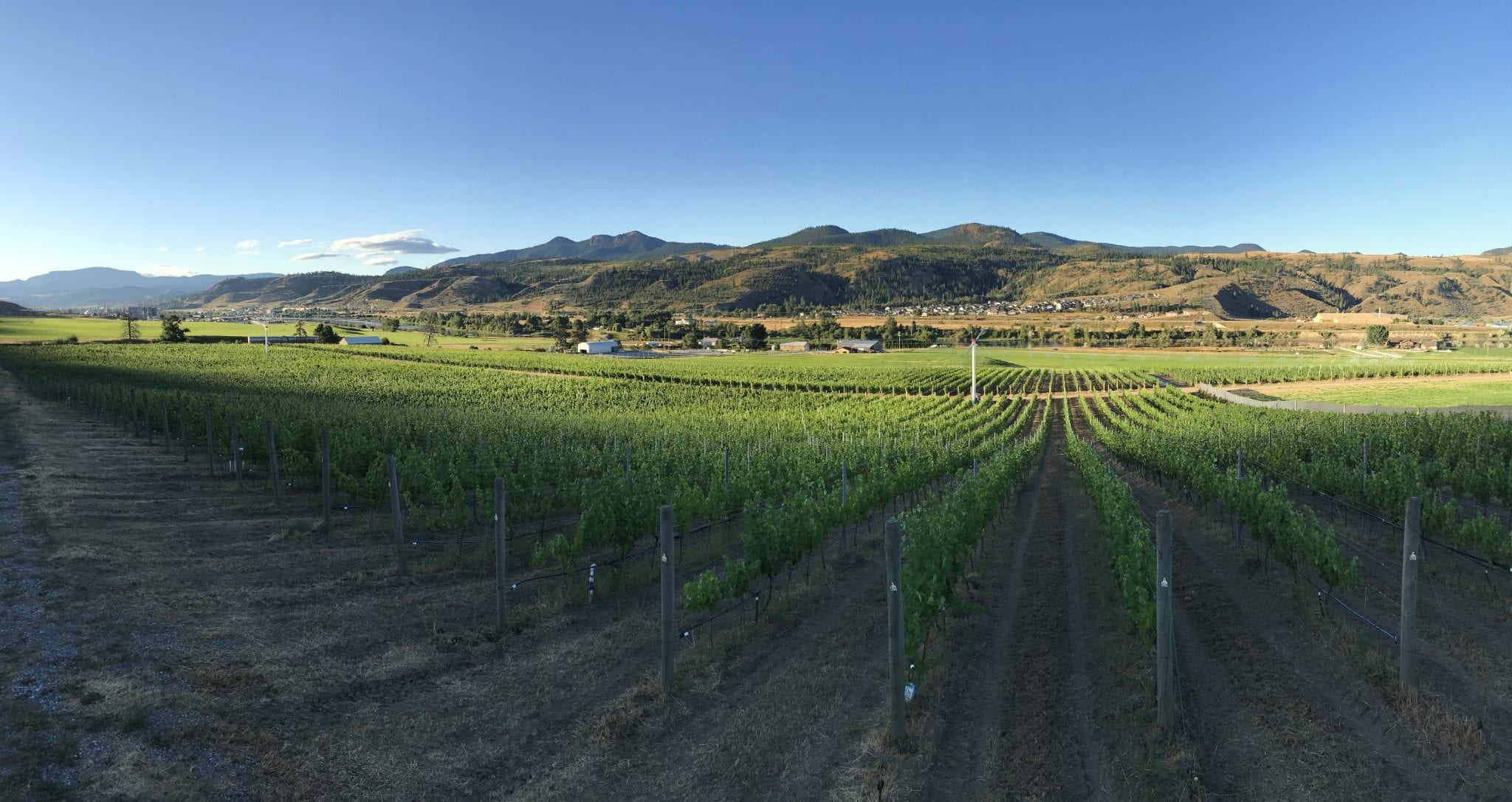
The 2017 vintage was a challenge right from the start. Mid-January saw temperatures as low as -27ºC and with 100% vinifera, these were scary times. Unfortunately, these temperatures did, in fact, translate into bud damage and some lost crop. The Summer was hot and dry, with smoke from the now famous forest fire season that had the valley socked in for what seemed like months, resulting in less radiative heat from the sun – a very good thing. A slightly cool Fall allowed the flavours to develop and balance with the sugar and acid quite well.
The struggle of the vine coupled with the below average harvest has made for some spectacular wines.
Vancouver and The Gulf Islands
Zachary Brown Alderlea Vineyards / Motovino Wines
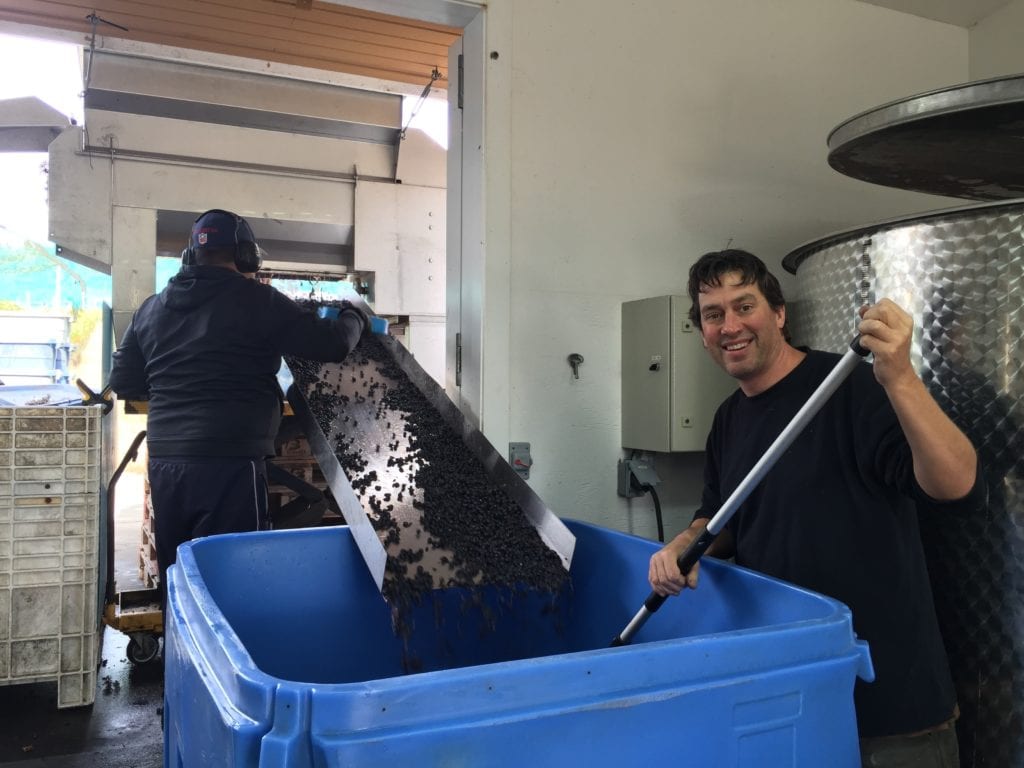
2017 was a year that got off to a cold start here in the Cowichan Valley. It was cold and wet right up until the end of May and early June. We saw a reduction in fruit set in the earlier budding varietals.
Then the summer took off like a Jack Rabbit, we had 100 days of hot weather that got to 35°C in our vineyard with only one day of rain. This combined with a warm September and moderate first half of October resulted in all our varietals hitting full phenolic ripeness. The reds had nice brown seeds and stems with mature tannin development in the skins. We saw an absence of green notes in our Vinifera and Blattner fruit. The Pinot Gris had more colour in the skins than I’ve ever seen before.
We did see moderate Brix levels compared to the previous two years. With the hot dry summer, we were able to reduce our spray program by one. We finished the harvest with zero evidence of mildew or disease. The rains came hard in the third week of October. We were one of the lucky Cowichan Vancouver Island growers who managed to get the whole crop in two days before the deluge.
Early assessment of the 2017 vintage shows our Sauvignon Blanc and Pinot Gris with pronounced aromatic profiles, clean fruit flavours, and crisp acidity. Our Pinot Noir was fermented in separate lots and early indications are that a reserve release may be possible.
The Matrix blend has no green notes and full round tannin structure that should pair well with our increased use of French oak, sustainably sourced from Ontario’s DRM Re-coop. This year we exclusively used yeast developed by Vancouver’s Renaissance Yeasts. This local biotech firm has classically bred no-GMO yeast that is incapable of producing Hydrogen Sulphide during fermentation. This has contributed to clean flavours and allowed us to move to a winemaking program with increased lees contact time on all our wines.
Bailey Williamson – Blue Grouse Estate Winery and Vineyard
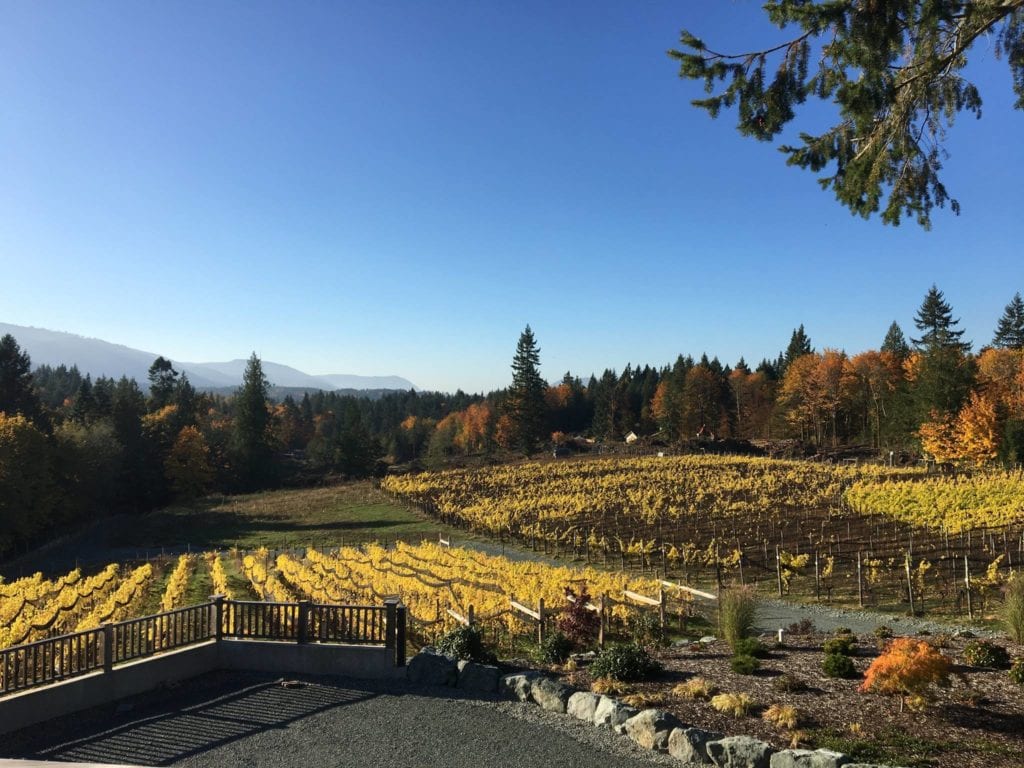
I cannot speak for everyone here on the Island but at Blue Grouse we began late with no perceptible heat units until June. We were not able to catch up like the Okanagan so although we had a great autumn the acids were still a bit higher than in the past few years. Deacidification was not required just due diligence on the winemaking. Yields were average over the whole at roughly 3 tons per acre.
With growing wineries on the Island, we are experiencing a supply crunch. So at Blue Grouse, we planted 7 acres this year dedicated to Pinot Noir, Pinot Gris and sparkling base. We are clearing land and will plant another 10 acres in 2019. Then 10 more in 2020. When all is said and done we should have about 30 acres of estate grapes.
Mark Simpson – Artisan Food and Beverage Group Inc.
Smoke was not as bad a problem as the BC interior but did provide shade for a cooler summer. The summer was cooler with not as many heat units. The main difference this year was that October saw only a few days of rain and a much longer growing season. 2016 had 20 days of rain in October. Overall an average vintage should be expected.
Fraser Valley
Mark Simpson – Artisan Food and Beverage Group Inc.

Wet spring like the Okanagan but less smoke and far less impact on tourism. Vintage 2017 was a good year with riper fruit. For example, 24 Brix Cabernet Foch at Seaside Pearl, 21 Brix in Langley. Overall a better than average vintage should be expected. The Fraser Valley is definitely one of the up and coming BC wine regions. Global warming will continue to make this region more attractive for cool-climate BC wines.
